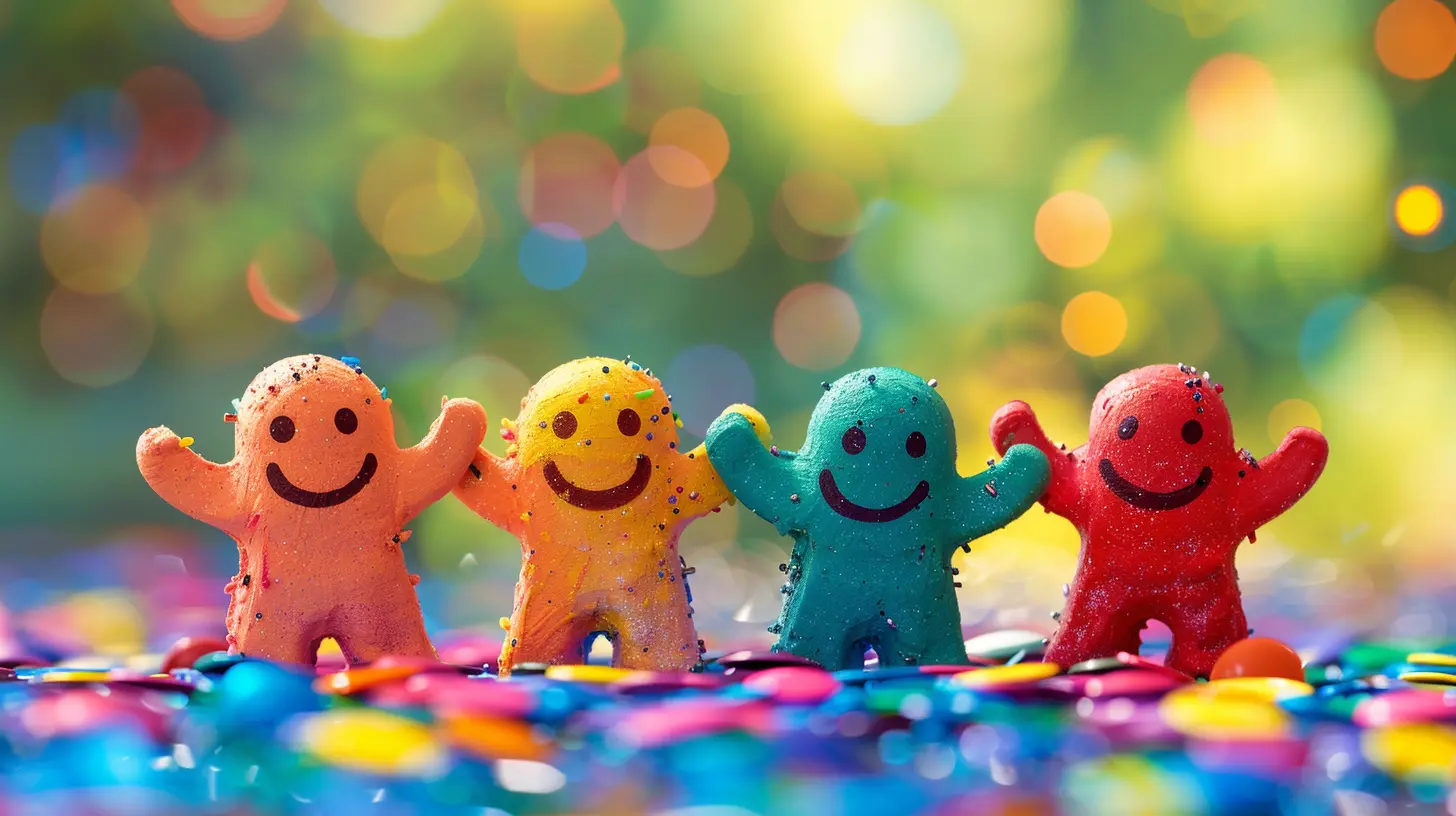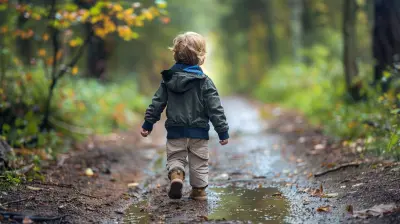Celebrating Small Achievements: The Importance of Positive Reinforcement for Preschoolers
1 May 2025
Ah, preschoolers—the tiny tornadoes of energy, emotion, and endless curiosity. They somehow manage to turn a quiet living room into a confetti-strewn carnival in under five minutes, just because you dared to look away. But amidst the chaos, something magical happens daily: growth.
Those little hands that once struggled to hold a crayon? Now, they’re scribbling masterpieces (or at least what they claim is a dinosaur). Those hesitant words? They've blossomed into full-blown conversations about why the moon is following them home. And as parents or caregivers, it’s our job to recognize these tiny but monumental milestones and cheer them on like they’ve just won an Olympic gold medal.
In fact, celebrating small achievements is more than just a feel-good moment; it’s an essential way to boost your preschooler’s confidence, encourage learning, and unleash their full potential. Let’s dive into why positive reinforcement is the secret sauce for happy, thriving kiddos, and how to make it a part of your parenting toolbelt.
Why Small Wins Deserve Big Celebrations
Have you ever noticed how preschoolers find joy in the smallest victories? They beam with pride after putting on their socks (even if they’re on backward), or they strut around the house after successfully zipping their jacket. That’s because, at their age, every little accomplishment feels like climbing Mount Everest.As adults, we're quick to brush off these small wins with a casual “Good job” before returning to our emails or scrolling Instagram. But for kids, these moments are huge. Celebrating these milestones reinforces one major truth in their minds: effort matters, and progress is awesome.
Think about it. If you worked hard on a project at work and your boss barely acknowledged it, wouldn’t it feel completely demotivating? Preschoolers are no different. When we shine a light on their achievements—no matter how tiny—it tells them, “Hey, I see you. You’re doing great.” That recognition fuels their confidence and motivates them to keep trying, even when tasks get tough. 
Understanding Positive Reinforcement
Alright, let’s break it down: positive reinforcement is a fancy term for rewarding good behavior to encourage more of it. It’s like giving your kiddo a high-five (or a cookie, let’s be real) for successfully using the potty. You’re essentially saying, “I approve of this! Keep it up!”Thanks to behavioral psychology, we know that positive reinforcement works better than focusing on mistakes or punishing missteps. Why? Because humans (big and small) are wired to seek rewards. Preschoolers, especially, thrive on validation. When you praise their efforts, it strengthens neural pathways in their brains, making those positive behaviors more likely to stick.
Think of it as planting seeds in their little mental garden. Every “well done” or “I’m so proud of you!” is like water and sunshine, helping those seeds grow into habits, self-control, and resilience. 
The Perks of Practicing Positive Reinforcement
So, you might be asking, “What’s in it for me if I turn into a full-time cheerleader for my preschooler?” Oh, friend, the benefits are endless:1. Boosts Self-Confidence
When you celebrate their achievements, you’re essentially handing your child a megaphone to say, “I can do this!” Self-confidence at an early age lays the foundation for a lifetime of resilience.2. Fosters Independence
Preschoolers love hearing that they’re capable little humans. When you acknowledge their efforts—whether it’s tying their shoelaces or cleaning up their toys—they feel empowered to try new things without constant help.3. Promotes Positive Behavior
Kids are smart cookies. If they know folding their clothes earns them a big ol’ smile and a “Wow, great job!” instead of just nagging, they’ll want to keep folding clothes.4. Builds Emotional Connection
Celebrating small wins isn’t just about the task—it’s about bonding. Shared moments of pride and joy create lasting memories and a stronger parent-child relationship.5. Sets Them Up for Lifelong Learning
By rewarding effort and persistence, you’re teaching your child that learning and progress are what matter most—not perfection. They’ll carry this growth mindset with them into kindergarten and beyond.
Everyday Examples of Positive Reinforcement
Okay, so how exactly do we celebrate these “small” but mighty victories? Don’t worry, you don’t need balloons and party hats for every little thing (though, hey, extra credit if you do). Here are some practical examples:1. Verbal Praise
Sometimes, a simple “You did it!” or “I’m so proud of you!” is all it takes. Be specific, though. Instead of just saying, “Good job,” try, “Wow, you worked so hard to finish that puzzle!”2. High-Fives and Hugs
Physical touch can be just as rewarding as words. A good ol’ high-five or an enthusiastic hug goes a long way in showing your excitement.3. Sticker Charts
Preschoolers love visuals. Create a sticker chart for tasks like brushing teeth, sharing toys, or practicing their ABCs. Once they hit a certain number of stickers, reward them with a small treat or special outing.4. Celebrate with Their Favorite Activities
Did they ace a tricky new skill? Let them pick a fun activity as a reward, like an extra bedtime story or a trip to the park.5. Handwritten Notes
Slip a little “You’re awesome!” note into their lunchbox. Sure, they might not be able to read it yet, but they’ll love the gesture and big swirly letters.Finding Balance: Don’t Go Overboard
Now, before you start throwing confetti every time your preschooler blinks, let’s talk about moderation. Constantly showering kids with praise for every tiny thing can backfire, making the rewards feel less meaningful.Instead, focus on celebrating genuine effort and progress, not just the end result. For example, praise your little one for trying to zip their jacket, even if they don’t get it right. And when they finally nail it after several attempts? That’s when you break out the balloons (metaphorically speaking).
What Happens When You Skip the Celebration?
“Okay,” you might think, “this all sounds great, but what if I don’t celebrate every little thing?”Well, let’s flip the script. Imagine if you’re a preschooler who’s trying their hardest, and no one seems to notice. Eventually, you might stop trying altogether, because hey, what’s the point?
When we overlook our children’s small achievements, they miss out on the confidence boost that comes from being recognized. Worse, they might start associating failure with shame, instead of seeing it as a stepping stone to success.
Turning Daily Life into a Celebration
You don’t need a Pinterest-perfect setup to weave positive reinforcement into your daily routine. Here’s how you can sprinkle some “yay moments” into everyday life:- Morning Routine: Cheer them on for brushing their teeth or getting dressed. “You picked out your outfit all by yourself? Rockstar move!”
- Mealtime Moments: Did they try broccoli for the first time without gagging? That deserves a round of applause—and maybe an extra scoop of mashed potatoes.
- Bedtime Wins: Celebrate when they stay in bed all night long. “You’re becoming such a great sleeper!”
- Tantrum Turnarounds: If they bounce back quickly from a meltdown, acknowledge their effort to regain control. "I know that was hard, but you did an amazing job calming down."
When Positive Reinforcement Gets Creative
Let’s be honest: parenting a preschooler can sometimes feel like negotiating with a very tiny, very emotional CEO. You’ve got to get creative. Instead of relying solely on verbal praise, mix it up with fun surprises.- Create a “Treasure Box” filled with small toys or trinkets they can earn.
- Write their achievements on sticky notes and stick them to a “Wall of Fame.”
- Turn their wins into silly songs or dances to celebrate together.
The Long-Term Impact of Celebrating Small Achievements
Here’s the big picture: every time you recognize your preschooler’s efforts, you’re building the foundation for a resilient, self-assured adult. Celebrating their wins now teaches them that growth is worth the grind, mistakes aren’t the end of the world, and their efforts are always appreciated.And honestly? It’s not just about them—it’s about us as parents, too. By focusing on the small, joyful moments, we remind ourselves to slow down, savor the progress, and appreciate the incredible little humans we’re raising.
So, let’s keep the celebrations rolling. Because in a world where preschoolers are still figuring out how zippers work, every victory—big or small—is worth a standing ovation.
all images in this post were generated using AI tools
Category:
Parenting PreschoolersAuthor:

Max Shaffer
Discussion
rate this article
5 comments
Aiden Harmon
Absolutely love this! Celebrating small wins makes parenting joyful and helps our little ones thrive. Every cheer counts in their journey!
May 16, 2025 at 4:22 AM

Max Shaffer
Thank you! I completely agree—celebrating small wins truly enhances our children's development and joy in parenting!
Cecilia Wells
Thank you for highlighting the importance of celebrating small achievements! It’s a beautiful reminder that our little ones thrive on positivity and encouragement. Every small step matters in their journey!
May 10, 2025 at 2:24 PM

Max Shaffer
Thank you for your thoughtful comment! Celebrating small achievements truly fosters growth and positivity in our little ones. Every step counts!
Lulu Wilcox
Who knew a sticker chart could inspire a future rocket scientist? Celebrate those tiny triumphs—today’s crayon masterpiece could be tomorrow’s gallery exhibit! Cheers to parenting magic!
May 7, 2025 at 4:32 PM

Max Shaffer
Thank you! Celebrating small wins not only boosts confidence but also sparks creativity and ambition in our little ones. Cheers to nurturing future innovations!
Kathleen McNab
Small wins hold big secrets for growth.
May 6, 2025 at 3:24 PM

Max Shaffer
Absolutely! Small wins build confidence and motivate preschoolers, laying a strong foundation for their future growth and learning.
Misty Alvarez
Absolutely! Celebrating small victories is like throwing confetti at a toddler's emotional parade. It's the secret sauce that turns tantrums into triumphs, making parenting feel a little less like circus juggling and more like a joyful dance! 🎉
May 6, 2025 at 2:59 AM

Max Shaffer
Thank you! I love that analogy—celebrating small victories truly transforms parenting into a joyous journey! 🎉




